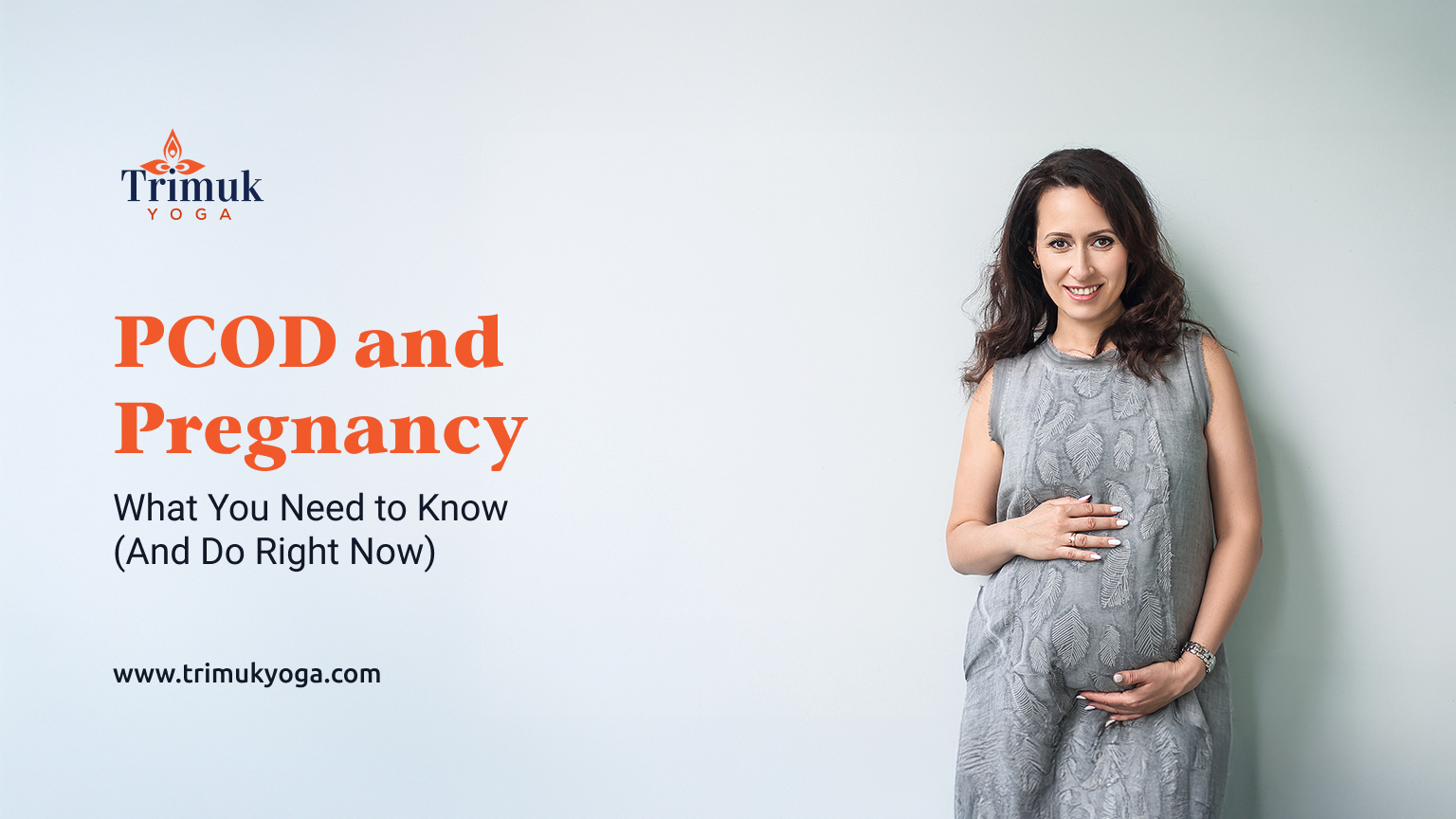PCOD and Pregnancy: What You Need to Know (And Do Right Now)
Can You Get Pregnant with PCOD? Yes—Here’s How Yoga, Breath & Nutrition Make It Possible


Facing PCOD while trying to conceive can feel overwhelming. The irregular cycles, hormonal imbalances, and emotional rollercoasters are real. But here's the truth: many women with PCOD have successfully achieved healthy pregnancies. With the right guidance, support, and lifestyle adjustments, you can too.
Polycystic Ovarian Disease (PCOD) is a hormonal disorder where the ovaries produce an excess of immature or partially mature eggs, leading to cyst formation. This condition disrupts ovulation, making conception challenging.
Key Symptoms:
These symptoms can interfere with fertility, but with proper management, many women with PCOD conceive and have healthy pregnancies.

Absolutely. While PCOD can pose challenges, it's not an insurmountable barrier to pregnancy. Key steps include:
With determination and the right approach, natural conception is achievable.
Yoga offers a holistic approach to managing PCOD and enhancing fertility:
Incorporating yoga into your routine can create a conducive environment for conception.

Practice these poses daily, focusing on breath and mindfulness, to support hormonal balance and fertility.

Diet plays a pivotal role in managing PCOD:
Staying hydrated and maintaining regular meal times can further stabilize blood sugar levels and support hormonal balance.

Breathing exercises and meditation can significantly impact hormonal health:
Incorporate these practices daily to foster a peaceful mind and balanced hormones.
The journey to conception with PCOD can be emotionally taxing. It's essential to:
Remember, you're not alone, and seeking help is a sign of strength.
Empower your fertility journey with our specialized PCOD and Pregnancy Yoga Program, led by Radhika Bargava. Experience personalized guidance, holistic practices, and a supportive community.

Q1: Can PCOD go away after pregnancy? A: While pregnancy can temporarily alleviate some PCOD symptoms, it's essential to continue managing the condition post-pregnancy.
Q2: How long does it take to get pregnant with PCOD? A: It varies for each individual. With proper management, many women conceive within a year.
Q3: Is it safe to practice yoga during pregnancy with PCOD? A: Yes, but it's crucial to consult with a healthcare provider and practice under guidance.
Q4: Which foods should I avoid with PCOD? A: Limit intake of processed foods, sugary snacks, and high-fat dairy products.
Q5: Can weight loss improve fertility in PCOD? A: Yes, even a modest weight loss can enhance ovulation and increase the chances of conception.
A renowned and qualified yoga instructor with years of experience in teaching traditional Hatha Flow and Ashtanga Vinyasa Yoga, Radhika is passionate about sharing the true essence of yoga with her students. Being a certified yoga teacher and health & nutrition coach, Radhika demonstrates a deep understanding of mind-body connection which is reflected in her tailored classes.

Get personalized care. Consult specialists about your concerns and treatments.
